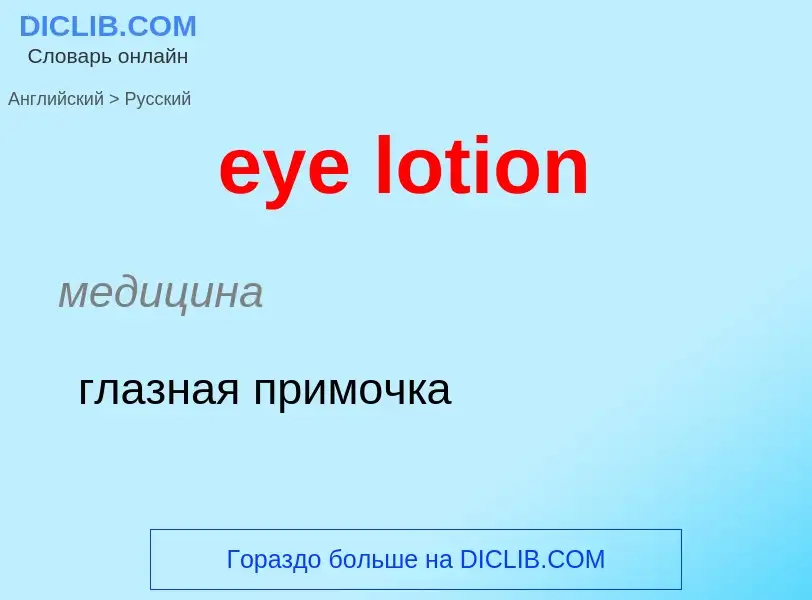Translation and analysis of words by ChatGPT artificial intelligence
On this page you can get a detailed analysis of a word or phrase, produced by the best artificial intelligence technology to date:
- how the word is used
- frequency of use
- it is used more often in oral or written speech
- word translation options
- usage examples (several phrases with translation)
- etymology
eye lotion - translation to russian
медицина
глазная примочка
[kə'li(ə)riəm]
существительное
общая лексика
примочка для глаз
глазные капли
медицина
суппозиторий
свеча
['kæləmain]
минералогия
каламин
галмей
гемиморфит (кремнистая цинковая руда)
существительное
минералогия
каламин
галмей
Definition
Wikipedia
In eye care, collyrium is an antique term for a lotion or liquid wash used as a cleanser for the eyes, particularly in diseases of the eye. The word collyrium comes from the Greek κολλύριον, eye-salve. The same name was also given to unguents used for the same purpose, such as unguent of tutty (Sanskrit tuttha meaning variously zinc oxide or blue vitriol). Lastly, the name was given, though improperly, to some liquid medicines used against venereal diseases.
Pre-modern medicine distinguished two kinds of collyriums: the one liquid, the other dry. Liquid collyriums were composed of ophthalmic powders, or waters, such as rose-water, plantain-water, that of fennel, eyebright, etc., in which was dissolved tutty, white vitriol, or some other proper powder. Dry collyriums were pastilles of Rhasis, sugar-candy, iris, tutty prepared and blown into the eye with a little pipe.
The 2nd century Mishnah mentions collyrium. The Sunan Abu Dawood reports, "Prophet Muhammad said: 'Among the best types of collyrium is antimony (ithmid) for it clears the vision and makes the hair sprout.'" Maimonides (12th century Egypt) mentions the use of this eye salve.


